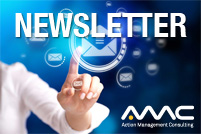Effective Management and Influencing Skills
During our intensive manager training, you will pass through specific areas of managing staff. Training program is designed in the way that you learn the skills that influence success in working with people and the skills necessary for accomplishing required team results.
Applying new motivation principles and techniques you will solve the issues that you previously thought had been unsolvable. By getting to know the systematic steps of the performance diagnostic model you will discover the causes of dissatisfaction and reduced performance from your own work environment.
The most serious mistakes are not being made as a result of wrong answers.
The true dangerous thing is asking the wrong question.
Peter F. Drucker
Program duration: 2 days
Key advantages:
- Absorbing knowledge and skills of building successful teams
- Ensuring feedback at the right moment
- Increasing knowledge and level of competence in the essential fields for successful managing
- Identification of existing and discovering new applicable models of motivation
- Initiating proactivity of employees and active participating in solving challenges
- Improving the skills for conducting and participating meetings
- Overcoming resistance to change
- Improving delegation skills
Main areas:
- Understanding people’s differences and their implications to managing
- Manager as a Coach
- Development of self-awareness and professional integrity
- Personal motivation and associates’ motivation
- Action NLP Model of Influence
- Link between job satisfaction and performance
- Role of manager in recognizing and rewarding positive initiatives
- Impact of timely reward, punishment and feedback on employee satisfaction
- Transformation on the desired behavior in an above-average behavior
- Focus on results and solutions
- Constructive conducting and participating in meetings
- Work organization and Action Model of effective delegating through stages
- Successful implementation of organizational changes and overcoming resistance to changes
Examples of exercises and additional development tools:
- Self-assessment questionnaire of internal/external Locus of Control
- Delegating exercise according the Action Model of delegating in phases
